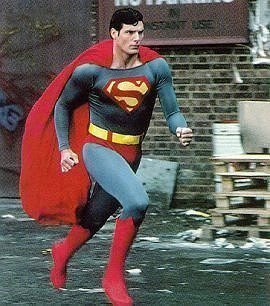PREFACE: Early last month i received an email from the Educational Commission for Foreign Medical Graduates (ECFMG) soliciting narrative contributions for their
Acculturation Program. As a self-identified victim of a "clash of cultures" early on, i thought my input might be valuable. I banged this piece out this afternoon and immediately sent it in. I don't know if it'll actually be accepted (i'm suspicious that it won't - it's mostly storytelling with little in the way of advice), but i thought i'd post it here anyway.
-------------
“Lost” is an understatement for the way I felt during my first month of Internship.
Having come into the US only a week before, I was quite literally a stranger in a strange land. True, I was already a practicing GP in the Philippines, spoke English fairly well, and had been in the US twice before (for my CSA and Residency interviews), but the shock of starting on my floor rotation with just a half-day orientation was like being thrown into the deep end of the pool with a guidebook on swimming tossed in as an afterthought.
It wasn’t the Medicine itself that was the issue – but rather everything else. My previous exposure had only been to third-world medicine: unquestioning allegiance to consultants (even when wrong), minimal charting, no EMR, TB as a differential for everything, diagnostic studies not done due to expense, suboptimal therapy given for financial considerations, and NO DISCUSSION OF CODE STATUS. But here, everything was evidence-based, no stone was left unturned, money was almost inconsequential, and code status was always, ALWAYS addressed on admission.
Unfortunately, my senior Resident – who I looked up to as God, was no help. Queried about the basics, such as “Why are all these people on subcutaneous heparin?” he would look at me disgustedly and say “Just do it!” Between my sheer bewilderment and lack of strong supervision, I consider it a minor miracle that I didn’t kill anyone.
And that was just in the hospital. After work, I still had to stress over getting my social security number, fixing my immigration papers (my DS-2019 had mysteriously vanished), stocking my apartment, and buying a car – with only a barely-functional social support system, as my blushing bride was on the other side of the globe working on her own immigration stuff and my closest relative lived four hours away. Getting around was in itself a challenge; I didn't know how to get anywhere and didn't even understand how to get through a four-way stop.
Thankfully, it all worked out in the end. With time and voracious reading, my knowledge bubbled to the surface and my synapses made the connection between third- and first-world (read: uninhibited by poverty) medicine. I got my social security card. USCIS issued a new DS-2019. I bought a “new” used car. Before the end of the month, my wife arrived and made me whole again. And then we went shopping and stocked the apartment.
Although I never considered self-mutilation, there were times that month that I felt my mind teetering dangerously close to depression. Whenever that happened, I just doubled-down and worked harder – another legacy of third-world medicine. But I wonder how much of my stress could have been alleviated by a simple helping hand.
I’m happy to report that in the seven years since I arrived in the US, our Residency program has made a better effort to reach out to new Interns, reducing their workload and assigning “guardian angels” to help out in their first week. There is now also a longer orientation. Because of my own experience, I try to be more attuned to the Interns’ stress levels and try to actively mentor them early on. I hope other programs out there also appreciate how starting Residency can radically change an IMG's entire world, and show appropriate understanding and sensitivity.




















































